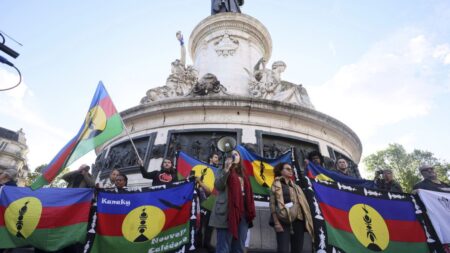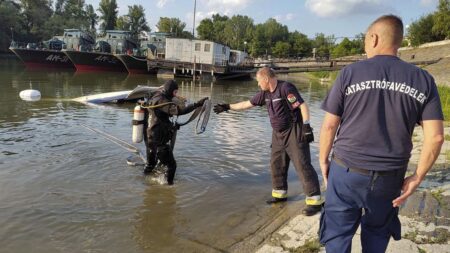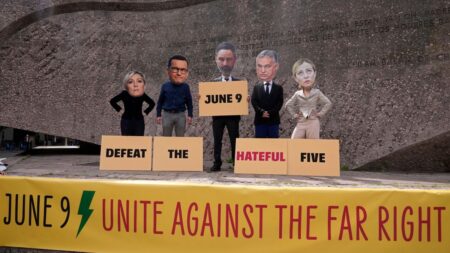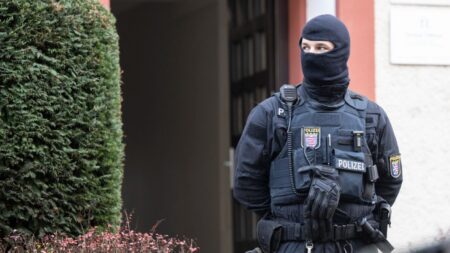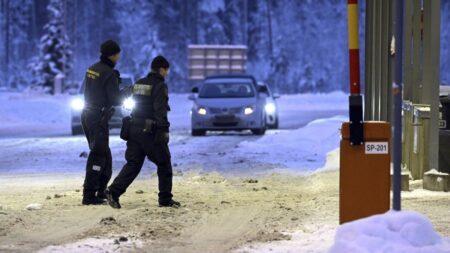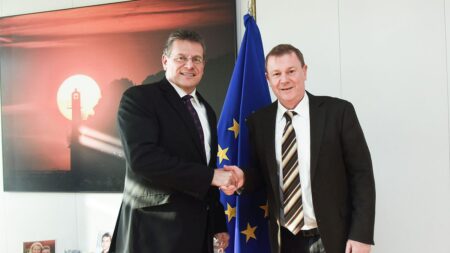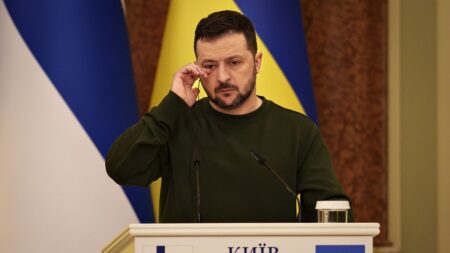The European Commission has recommended opening EU accession talks with Bosnia and Herzegovina, eight years after the Western Balkan country applied to be a member of the bloc.
Announcing her executive’s decision on Tuesday morning in a speech to the European Parliament, Commission President Ursula von der Leyen said: “Since we granted candidate status, Bosnia and Herzegovina has taken impressive steps forward. More progress has been achieved in just over a year than in over a decade.”
“Of course, more progress is necessary to join our Union. But the country is showing that it can deliver on the membership criteria, and on its citizens’ aspiration to be part of our family,” von der Leyen added.
“The future of Bosnia and Herzegovina lies in our Union.”
EU enlargement commissioner Olivér Várhelyi said that the country had “relentlessly” advanced on its goal of European integration, delivering “very positive results.”
The Commission’s recommendation will need to be approved by all 27 EU leaders, who are set to decide in a summit next week in Brussels.
Bosnia and Herzegovina – which was granted EU candidate status in December 2022 – is one of five Western Balkan countries recognised as official candidates to join the EU. Until today, it was the only one of those countries yet to enter formal accession negotiations.
Deeply entrenched ethnic divisions and delays in constitutional, judicial and electoral reforms have prevented the country from catching up with its neighbours on the path to EU membership.
In its annual assessment of EU candidate countries’ progress towards accession released last October, the Commission said it needed to see further constitutional and electoral reforms and better alignment with the EU’s foreign policy before Bosnia’s bid could be advanced.
In particular, the EU executive was concerned by how the Republika Srpska, one of the country’s two territorial entities made up of mostly ethnic Serbs, had advocated for a neutral stance on Russia’s full-scale invasion of Ukraine.
Just last month, Republika Srpska’s President Milorad Dodik held his fourth meeting with Russian President Vladimir Putin since Russian troops invaded Ukraine.
Yet, von der Leyen assured on Tuesday that “Bosnia and Herzegovina is now fully aligned with our foreign and security policy, which is crucial in these times of geopolitical turmoil.”
Many EU countries, branded the so-called ‘friends of Bosnia’, have called for Bosnia’s path to EU membership to be advanced at the same pace as Ukraine’s. They include Austria, Croatia, Italy, Hungary, and Slovenia.
Russia’s invasion has injected a sense of renewed energy into the European Union’s future enlargement, with the integration of Western Balkan states seen by many as crucial to bolstering the bloc’s geopolitical relevance.
Responding to the announcement on Tuesday, Austrian Chancellor Karl Nehammer said on social media platform X: “Austria was and is a committed and strong partner of the Western Balkan states and their European integration! I’m happy that our effort was worth it!”
The country’s foreign minister Alexander Schallenberg said the opening of talks with Bosnia and Herzegovina is a “strong signal” for the EU’s “integration of the Western Balkans.”
Slovenia’s foreign minister Tanja Fajon vowed to continue to back Bosnia’s integration into the bloc.
Should EU leaders greenlight the Commission’s recommendation, Bosnia and Herzegovina can proceed into the next phase of talks.
But these talks would mark just the start of a long and often complicated process of negotiations, which can take years before a country becomes a fully-fledged member.
The Commission is also expected to present a draft negotiating framework for Ukraine and Moldova’s accession this week. That framework will also require the approval of EU leaders.
Read the full article here



